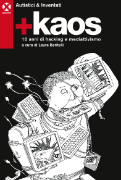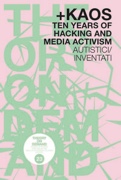Le password, che fastidio / Passwords are a nuisance
[ENGLISH VERSION BELOW]
I problemi di sicurezza emersi lo scorso settembre ci hanno spinto a rivalutare il valore delle password.
È inutile nasconderselo, le password sono qualcosa che geneticamente non ci appartiene.
Spesso, quando compare un form da compilare con una password da inserire, ci capita di volgere lo sguardo al cielo mentre le sinapsi non trovano le giuste connessioni per ricordarci quella stramaledetta sequenza di caratteri alfanumerici.
Una soluzione utilizzata è quella – non molto accorta, in verità – di riutilizzare password simili cambiando solo il numero finale, o, peggio ancora, l’uso della stessa password su diversi servizi.
Una poco pregevole alternativa consiste nel salvare la password dentro il browser o nel client di posta, in modo che loro la ricordino al posto nostro, ma con l’inconveniente che si tratta di sistemi che con la stessa semplicità possono rivelare la password a chiunque gliela richieda (a meno di non impostare una master password, che però dev’essere complessa e va ricordata a sua volta).
Una soluzione più furba sono i password manager che, pensa, richiedono una password per essere sbloccati… Ricordare una sola password è sicuramente più semplice di ricordarne qualche decina, ma la pressione psicologica di una sola password che custodisce tutte le altre ci attanaglia: e se ce la dimentichiamo? L’apocalisse.
E comunque alla fine, qualsiasi sistema scegliate, la tendenza a dimenticare le password, e perfino le risposte alla domande di sicurezza, rimane invariata, come continuiamo a osservare nelle richieste di aiuto che ci arrivano.
Vorremmo porre fine a questo tormento, vostro e nostro.
Tutte le big data corporation stanno spingendo per soluzioni biometriche: impronte digitali, iride, riconoscimento facciale e vocale.
Noi per formazione saremmo contrari, molti dei sistemi in uso si sono già dimostrati vulnerabili, ma tant’è, il mondo è brutto e siamo alla costante ricerca di comodità a scapito di altro (privacy e sicurezza in questo caso).
Per questo stiamo terminando lo sviluppo di un piccolo “naso elettronico”.
Sapevate che ognuno di noi ha un suo odore assolutamente personale?
Esistono studi dell’Università Politecnica di Madrid UCF indirizzati a definire protocolli di identificazione e sorveglianza basata sugli odori che hanno già prodotto una collaborazione con una startup spagnola per produrre dei prototipi di apparecchi portatili.
Si tratta semplicemente di una penna USB che invece di avere una memoria al suo interno ha una piccola ventola aspirante e un microspettrometro di massa.
Il software che intendiamo usare è questo (roba da bioinformatici) e sarà inserito dentro la penna, non dovrete installare niente.
Basterà qualche giorno di training per permettere al sistema di riconoscere le vostre essenze di base e da quel momento la penna si occuperà delle operazioni di login, tramite un’estensione (compatibile per tutti i sistemi operativi) del browser e del client di posta. In un primo momento l’estensione funzionerà solo per Firefox, Google Chrome e Thunderbird, ma lo sviluppo per altri client e browser è già previsto nella nostra scaletta di marcia.
Ovviamente per chi si sente in grado di continuare con l’uso delle password, che noi comunque raccomandiamo, non cambierà nulla. Chi invece non si fida di se stesso, potrà richiedere di partecipare alla fase di beta testing. Ai primi 100 volontari invieremo gratuitamente la penna a casa per cominciare a fare delle prove.
(Spiacenti, ma le penne hanno un costo: le prime 100 le regaliamo, poi penseremo a distribuirle a prezzo di costo, circa 19 euri).
Se siete interessati andate su questa pagina e compilate il form.
Lo sentite anche voi questo fresco profumo di futuro?
[ENGLISH VERSION]
Due to the security problems we had last september, we had to reconsider the value of passwords.
Denying it doesn’t make sense: humans are not biologically made to keep passwords.
Often, when having to fill in a form with a password, we stare blankly at the sky while our synapses have a hard time finding the right connections to remind us that bloody alphanumeric sequence.
One solution – not very smart to be honest – is to re-use similar passwords with just the final number changing every time, or, even worse, to use the same password for different services
Another, not very useful, alternative consists in saving passwords inside the browser/mail client, so that they can remember it for us, but the problem is that with these tools passwords are as easy for us to store as they are for anyone else to find them (unless we set up a master password, but this needs to be complex and memorable for us).
A smarter solution is password managers, which require a password to be unlocked… Remembering just one password is certainly easier than remembering dozens, but the psychological pressure produced by having one password to protect all the others is difficult to bear: what if we forget it? It would be catastrophic.
In any case, regardless of the system you have chosen, there’s a trend to forget passwords, and even the answers to the security questions, as we keep seeing in the requests our helpdesk receives.
We would like to stop this torment, on your and on our side.
Big data corporations are all pushing for biometric solutions: fingerprints, iris scans, facial and vocal recognition.
Given our background, we should be against this, since a lot of these systems have already been hacked, but as we all know the world is evil and users are constantly looking for comfort and convenience, even if this means reducing their privacy and security as in this case.
For this reason we are developing a small “electronic nose”.
As some of you may know, everyone has their own personal smell.
Studies have been carried out at the Polytechnic University of Madrid UCF with the purpose of defining identification and surveillance protocols based on smell, and a Spanish startup company has started to produce prototypes of portable devices.
The electronic nose is simply a USB stick equipped with a small suction fan and a tiny mass spectrometer.
The software we intend to use to control the hardware is this (stuff only bioinformatics experts understand anyway). It will be pre-installed in the USB stick: you won’t have to install anything.
After some training days, the system will be able to recognize your basic essence and you will be able to use the stick to login to your mailbox with a browser extension or your favourite mail client (the stick will be compatible with all operating systems). During the beta testing stage, the extension will only be available for Firefox, Google Chrome, and Thunderbird, but the development for more clients and browsers is in the roadmap.
Obviously we recommend to continue to use the passwords and keep your memory trained, but if you don’t trust yourselves you can ask to be part of the beta testing program.
The first 100 beta testers will get the USB Nose delivered for free, but unfortunately the sticks cost money, so after the first 100 we will ask you to cover the expenses, with a contribution of about 19 euros.
Here is the link for the request.
Can you smell this fresh scent of future too?


Aprile 1st, 2018 at 8:01 pm
Nel link indicato che rimanda al form…il form non c’è
Aprile 3rd, 2018 at 9:54 pm
Very well! I guess, it’s an fools day hoax :-) I was thinking, WTH did they take the last days? Keep the spirit !